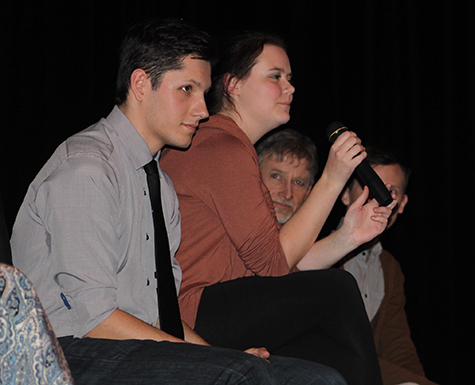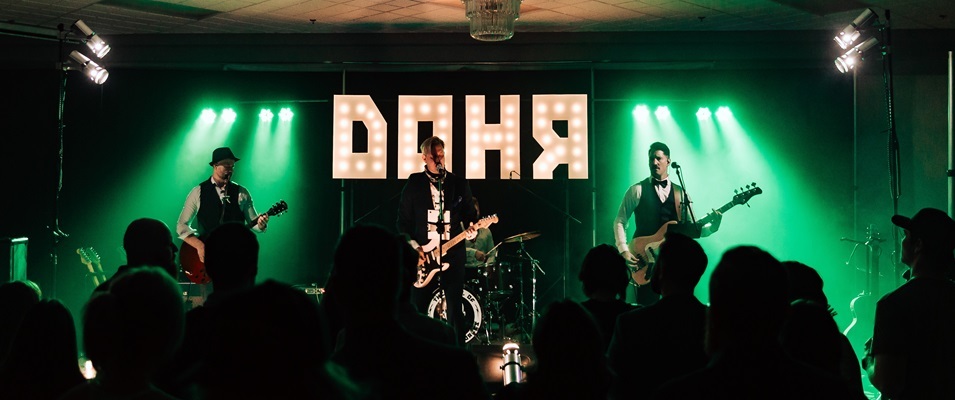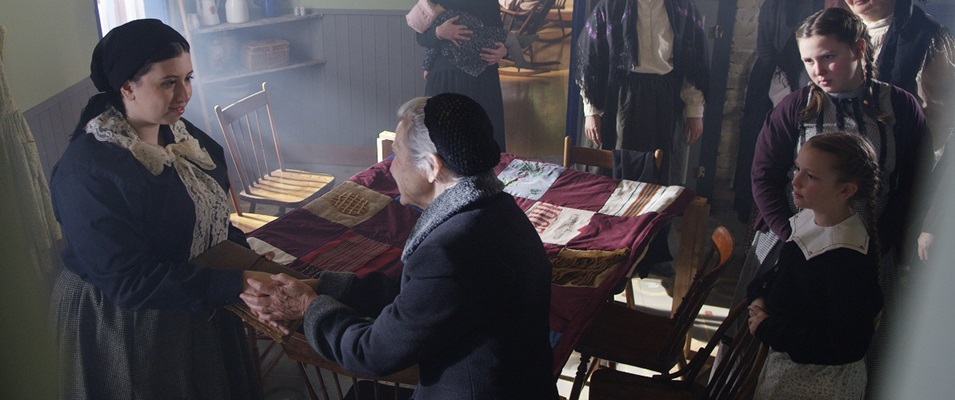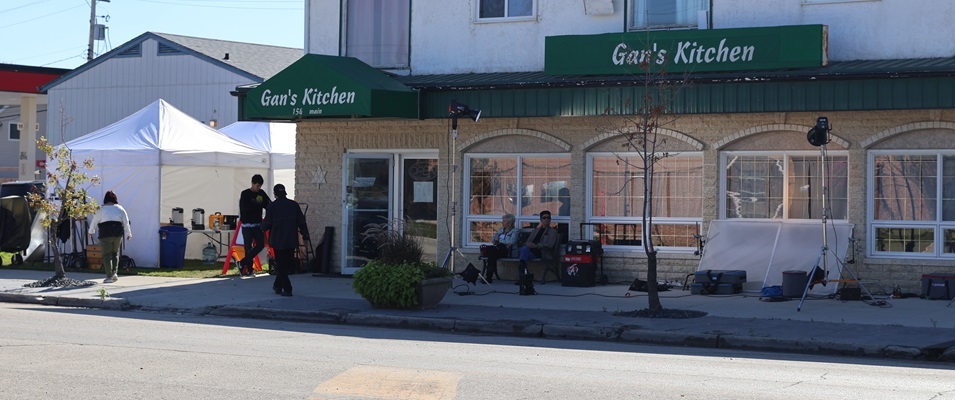
In one of J.K. Rowling’s Harry Potter books, a character once said, “Understanding is the first step to acceptance, and only with acceptance can there be recovery.”
On October 28–29, the theatre production Still Listening… Voices Among Us took to the stage at the Steinbach Regional Secondary School with an ambitious goal: to raise the curtain on a better understanding of those in the LGBTTQI community and the families that love them.
“Understanding the lived experiences of marginalized voices is a central process in developing empathy, which then informs our responses and interactions with them and about them,” says playwright and director Val Hiebert. “Without genuine understanding we fail to see the humanity in the other—their pain, their joy, their brokenness, and their goodness. We fail to see that, in the end, they are just like us. That they are not they at all; they are actually we. That was the inspiration for the entire project—wanting to amplify the voices and lived experiences of our LGBTTQI neighbours so that we can all grow in understanding, wisdom, and welcome.”
The project began with Steinbach Neighbours for Community (SNFC), a group of individuals whose objective is to promote understanding and acceptance of the human diversity among us. Hiebert and fellow SNFC member Donna Snider conducted extensive interviews with local LGBTTQI persons, parents, spouses, and allies. A total of 29 people came forward to tell their stories, all of them current or previous residents of southeast Manitoba. They ranged in age from teens to adults in their sixties.
“The most powerful theme that was present in so many of the interviews was the incredible amount of grace and forgiveness that LGBTTQI and their families extend to those who condemn them. Their example of love and welcome, in the midst of the many forms of rejection they face, will always stay with me. They modelled a generosity of spirit that was at times almost breathtaking. I so much wished that everyone could have been a fly on the wall to hear their stories firsthand, because it is impossible to hear them and not be changed in some way.”
Their words were recorded, then transcribed, and eventually a script was created, 80 percent of which was a word-for-word retelling through the voices of eight fictitious characters on stage. The actors, too, ranged in age from their teens to senior citizens, and each delivered a powerful message fraught with angst, pain, courage, fear, self-doubt, forgiveness, acceptance, and unacceptance.
“It’s very powerful to hear your own words and experiences shared on stage for others to hear,” says Damon Klassen, former Niverville resident and interviewee for the production. “My life growing up in Niverville was not unique. It’s a story that hundreds of LGBTQ individuals have experienced and are still experiencing today in southeastern Manitoba. If sharing my story can help someone through their own challenging experiences, or maybe even help someone to recognize how hurtful they’ve been to the LGBTQ community, then revisiting some of those painful memories is worth it.”
The play’s message was further enhanced by spoken word poetry, a choir, and musicians led by Millie Hildebrand, well known in the southeast for her extensive career including work with the Faith and Life Women’s Chorus.
According to Hiebert and Hildebrand, actors and musicians were not difficult to find despite the potentially controversial nature of the production.
“In fact, it was easy,” says Hildebrand. “All said yes. All spoke highly of the experience that provided an opportunity to highlight their dedication to this important conversation in our community and beyond.”
The most telling indication of the impact of any theatrical presentation is audience response. According to Hiebert, the auditorium was packed for each performance.
“There was a full standing ovation both nights,” Hiebert says. “In all my years as a director, producer, actor, and theatre-goer I have never seen such an instantaneous full-house standing ovation. I stood at the back and wept as I watched it happen. The simple fact that two-thirds of the audience stayed for the [performer-audience] conversation afterwards was remarkable. That never happens.”
As to whether the production will be taken on the road, Hiebert says the possibility will be addressed at the next SNFC meeting.



















